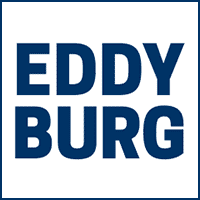

OpenDemocracy, 15 novembre 2017. Mentre al COP23 di Bonn si parla dei cambiamenti climatici, il gasdotto avanza indifferente alle proteste e alla incongruenza tra uso di combustibili fossili e agenda climatica: si sa gli affari prima di tutto (i.b.)
Un nuovo rapporto della Corporate Europe Observatory - espone la rete di lobbismo e ipocrisia che si celano dietro la deleteria espansione dei combustibili fossili in Europa. L’articolo dell’ Open Democracy riporta alcuni dei tanti episodi di corruzione e riciclaggio di denaro sporco legati a questa opera. (i.b)
FROM THE BOAT RACE TO AZERBAIJANI JAILS:
HOW DIRTY GAS SELLS ITSELF TO ELITE
di Jo Ram e Pascoe Sabido
The European Investment Bank (EIB) is at COP23, the UN climate talks in Bonn, talking about financing climate solutions.
Yet this week it is also facing mass protest over its possible multi-billion euro loan to the Trans-Adriatic Pipeline (TAP). The pipeline would transport Azerbaijani gas from the Turkish-Greek border to the heel of Italy. The $4.5bn TAP is the last leg of the BP-led Euro-Caspian Mega-Pipeline, or Southern Gas Corridor as the industry calls it. The entire Euro-Caspian Mega-Pipeline costs $45bn and is mired in human rights abuses, corruption scandals and numerous illegalities - but it’s still going ahead.
New research from Corporate Europe Observatory exposes the web of lobbying and PR that has allowed the pipeline to to get this far, roping in prestigious London universities and top politicians along the way.
The Trans-Adriatic Pipeline’s shareholders include oil and gas majors BP and Azerbaijani state-owned SOCAR (1), along with gas pipeline builders and operators from Italy (Snam, 20%), Belgium (Fluxys, 19%), Spain (Enagás, 16%) and Switzerland (Axpo, 5%).
But construction is being held up by communities along the pipeline whose livelihoods are being threatened. In Greece, farmers have been organising themselves through the courts and on the ground, while in Italy local communities have been physically putting themselves in the way of the diggers. The military has just locked down two local villages to ensure construction begins. In Azerbaijan, local activists and journalists opposing TAP and the entire Southern Gas Corridor have been thrown in jail on trumped up charges. Azeri President Aliyev has been keen to silence dissent and quash any hint his corrupt regime is rigging elections and violating human rights.
The recent Azerbaijani Laundromat scandal exposed the regime's use of tax havens and money laundering to fund its efforts to curry favour with European politicians and other figures – buying their silence and political support with gifts and bribes. Less notorious are the softer approaches; the campaigns to make Azerbaijan and the entire Southern Gas Corridor acceptable in the eyes of the political and economic elites in national capitals and with the European Commission. The latter is lending substantial political as well as economic support to the mega-pipeline.
A key player is The European Azerbaijan Society (TEAS), an Azeri lobby group with offices around Europe. Headed up by the son of an Azeri Minister and member of President Aliyev's inner circle, TEAS is teaming up with think tanks, lobby groups and academic institutions to organise high-level events to build credibility around the Southern Gas Corridor.
One TEAS collaborator is the prestigious King’s College London. Alongside BP and the consortium TAP AG, TEAS is an official partner and supporter of the university's European Centre for Energy & Resource Security (EUCERS). In January 2014 they organised the European Energy Forum, putting ambassadors and ministers from TAP countries on panels alongside friendly academics, think tanks, and top executives from BP and TAP AG. The supportive European Commission was not just a speaker, but also sponsored the event's networking session. The keynote was delivered by Michael Fallon, the UK's then-Minister for Energy. Two months later in Parliament his government publicly championed Azerbaijan as a European gas supplier.
TEAS also targets UK decision makers through organising and sponsoring cultural and sporting events, such as the iconic Oxford-Cambridge University Boat Race in 2014 or the jazz events organised during the Conservative, Labour and Liberal Democrat party conferences.
TEAS is just one channel used by the consortium TAP AG to win support. The combined lobbying budget of TAP AG and its shareholders exceeded €6m in 2016, with 26 lobbyists on the payroll. This secured them more than 30 meetings between late 2014-2017 with Vice-President Maros Šefčovič and his cabinet, the European Commission's Southern Gas Corridor champion.
More examples are given in the report, but the gas industry in general is a major player in Brussels, convincing the EU that gas is a 'clean' fuel (despite its methane emissions making it as bad for the climate as coal). If the gas industry and it’s PR bedfellows get their way, the result will be a completely unnecessary gas infrastructure building programme, with TAP just one of many new projects. In fact, European gas demand has fallen 13% since 2010 while liquified natural gas (LNG) infrastructure is being used at less than 25% of its capacity.
The new pipelines and gas infrastructure will lock Europe into 40-50 more years of fossil fuels and the social and environmental consequences it entails. Gas expansion is not something the EIB should be funding. Around Europe groups are calling on the public bank to not fund TAP or any new gas infrastructure. Given their posturing at COP23 around climate solutions, pulling out of gas should be a no-brainer.